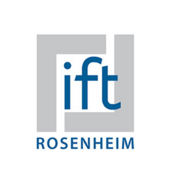The intimate relation between math and physics – beautiful for physicists, hard for students
The intrinsic mathematical nature of physics implies that understanding in physics is strongly connected to the ability to think about the world in mathematical structures. As such, proficiency in mathematics is required to understand physical phenomena and being able to combine the two fields is a prerequisite to become proficient in physics.
Studying students’ reasoning while combining mathematics and physics is an important topic in physics education research. It is clear that bringing mathematics and physics together to describe the real world is not at all evident for students.
In this talk, we will describe recent research on the math-physics interplay, not only at the introductory but also at the more advanced level. We will discuss student reasoning, theoretical lenses to study this reasoning and first steps to support students to get more insight in this complex though intriguing relationship.
→ The keynote of Mieke de Cock is available to view on the YouTube channel 'Videowissen', entitled "The Role of Mathematics in Understanding Physics | Mieke De Cock".
Prof. Dr. Mieke De Cock

Mieke De Cock studied physics at KU Leuven (Belgium) where she also obtained her PhD in Theoretical Physics. After her PhD, she worked a few years as a medical physicist at the Radiotherapy Department in the University Hospital Brussels. In 2007, Mieke returned to KU Leuven where she now is full professor at the Department of Physics and Astronomy. She is responsible for the Teacher Education Program in Science and Technology and leads the APER (Astronomy and Physics Education Research) group. Her research has a strong focus on conceptual understanding in Physics and Astronomy and on the Mathematics-Physics interplay, both at secondary and university level.







